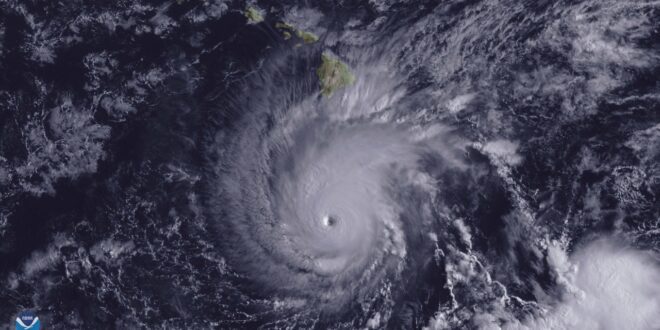Preparing Your Business for a Major Disaster
Attorney Bryan Andaya, a Director at ES&A law firm and former President & COO of L & L Franchise, joins producer/host Coralie Chun Matayoshi to discuss what businesses need to do to prepare for a major disaster.
Business continuity
According to FEMA, the statistics are alarming. After a major disaster, 40% of businesses will not reopen, another 25% will fail within 1 year, and over 90% will fail within 2 years. It is crucial for businesses to have a plan in place to ensure continuity in the face of such challenges. An SMS study revealed that small businesses often face significant impacts and concerns from natural disasters. These include a loss of electricity, communications, safety of employees, loss of technology equipment, damage to facilities, and road access.
Assessing Business Needs
Before creating a disaster preparedness plan, it is essential to assess what your business needs to continue providing goods or services. This goes beyond simply continuing operations and focuses on how to deliver goods or services, even if the process needs to be modified or completely different. Important considerations include whether people need to be physically present, the criticality of technology, potential supply chain issues, and the impact of the disaster on suppliers. Backup suppliers may be necessary to meet business needs. In some cases, businesses may need to pivot to a different business model, as many restaurants did during the Covid pandemic by shifting to take-out and delivery services.
Preparing for Likely Natural Disasters
Brainstorming likely natural disasters that could affect your business is a crucial step. Assess the likelihood and potential impact of each disaster. This information will help you determine if you need separate plans or variations to your preparedness strategies depending on the type of threat. Examples of disasters to consider include fires, volcanic eruptions, tsunamis, pandemics, workplace violence, active shooters, and cyberattacks.
Disaster Emergency Response and Preparedness Plans
Developing a robust communication system is essential. Assign a team and specific individuals responsible for communication. Clearly define how to initiate the emergency response system. Prepare evacuation and assembly point procedures with primary and secondary routes that are clearly marked and easily accessible. Keep emergency contact information for public agencies, employees, key customers, and clients. It is also crucial to have appropriate insurance coverage, such as general liability, vehicle and structure, hurricane, flood, and business interruption. Back up and secure data offsite in a different location. Encourage team members to be prepared at home and collect and maintain emergency supplies. Ensure that your written plan is widely distributed, acknowledged, and readily available. Provide training for new hires and refreshers for existing staff, making it engaging and memorable. Finally, test and rehearse the plan to make it realistic but not overly burdensome.
Cybersecurity Disasters
Businesses must also be prepared for cybersecurity disasters. Equipment failure and loss of data can lead to liability and a public relations nightmare, resulting in a loss of trust. Educate your team and provide them with the necessary tools and training to effectively respond to such incidents.
Communication is Key
Following a disaster, effective communication with your team, customers and clients, regulators, and the public is critical. Designate an experienced individual or team internally to handle communication or consider acquiring outside expertise for an objective perspective. The way you communicate becomes the reality, so establish credibility for the future.
Conclusion
Preparing for a major disaster is crucial for businesses to ensure continuity and minimize the risk of failure. By assessing business needs, preparing for likely disasters, creating effective disaster response plans, and prioritizing communication, businesses can increase their chances of successfully navigating through challenging times. For more information on this subject, tune into the video podcast.
Disclaimer: This material is intended for informational purposes only and does not constitute legal advice. Laws vary by jurisdiction and are constantly changing. For legal advice specific to your case, consult a lawyer who can apply the appropriate law to your circumstances. “What’s the Law” is sponsored by Hosoda Law & Just Well Law, representing families who lived on the Navy water line on O’ahu between May and November 2021, seeking accountability and financial recovery from landlords and the United States. To learn more, visit well.law/redhill.
 Mind Uncharted Explore. Discover. Learn.
Mind Uncharted Explore. Discover. Learn.



